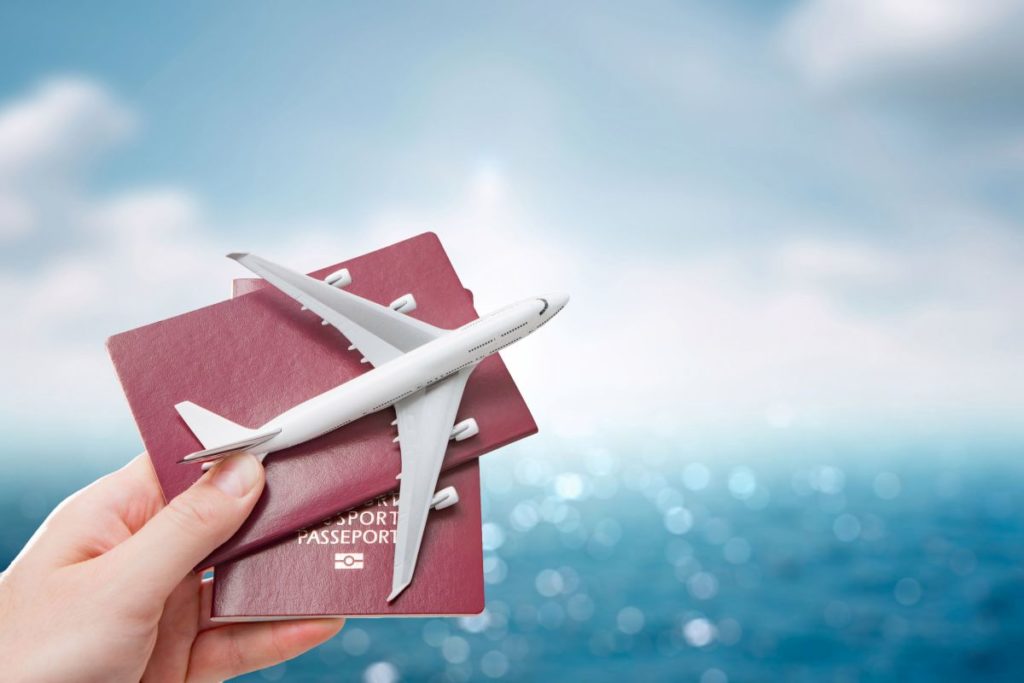
CBD seems to be on everyone’s mind these days, with plenty of anecdotal evidence claiming multiple health benefits. However, due to its connection to cannabis, the compound’s recreational and medical uses have faced scrutiny, making traveling with it all the more difficult.
Not every country is so strict, though — at the time of writing, the following five allow us to travel with CBD, but to a certain extent.
France
People of France are free to grow their hemp, but they have to use government-approved strains and abstain from using the flowers or leaves. Unsurprisingly, they cannot use marijuana, as the levels of THC will be higher than what the law recommends.
The confusing part about France’s laws is that hemp can have 0.2% THC by weight, but CBD products cannot have any. It is legal to use, possess, and sell CBD products if their THC content is 0%. Thus, French men and women can mostly opt for isolates only. Foreign visitors should consider going for CBD without THC products, too, to avoid uncomfortable brushes with authorities.
Italy
Italy has a long history of hemp cultivation that goes way back to the Second World War. But it wasn’t until 2016 that we could see a real change in the law, which made hemp cultivation legal. Today, CBD is in a legal grey area, which lets us get some CBD oil online and in brick-and-mortar stores. The THC content has to be 0.2% or lower, though.
At first glance, Italy’s CBD laws seem rather confusing, but we could say that it is possible to travel to Italy with our CBD products. However, the THC content mustn’t go above 0.6%, as that threshold makes it illegal, even if we are only using the product for health. Since the government isn’t so keen on CBD products anyway, it’s best to stick to those with 0.2% THC or less — this threshold applies to most of Europe.
Australia
It’s legal to trade hemp products in Australia, but traveling with CBD oils, tinctures, and similar substances is only legal if the THC and CBD content are 0.005% (50 mg/kg) or less and 0.0075% (75 mg/kg) or less, respectively. Furthermore, the product should not contain any other drug. If all recommendations are respected, we don’t need permission to import our CBD products.
We can also buy CBD products while in Australia. Right now, those over the age of 18 can go into any specialized shop and purchase CBD products, no matter if they are for personal use or their pets.
United States of America
According to the 2018 Farm Bill, hemp-derived CBD has been made legal in all 50 states, so CBD oil produced from industrial hemp is legal on a federal level. However, each state can impose its laws and regulations, making traveling with CBD a bit complex.
Some states may disregard medical reasons for carrying CBD on a plane; others (like Oregon) wouldn’t make a fuss about it. Thus, we can technically bring our CBD products with us. However, they must be derived from hemp and have 0.3% or less THC. Marijuana-derived products remain illegal in most states.
The best course of action would be to print out a product’s lab report to show the TSA officers. However, some research beforehand is also welcome to avoid clashing with different state laws. In general, we’re able to take CBD with 0.3% or less THC on planes or while traveling the country by some other means of transport.
When traveling abroad, it’s best to avoid bringing any CBD altogether, as the laws might be too murky to understand. Otherwise, we should check if we need to get a permit or special permissions to import our CBD products when traveling by plane.
If we’re traveling by ship (like a cruise ship), we have to check the rules beforehand as well. Some of them have banned cannabis and its derivatives (including CBD products) completely.
Canada
Until 2018, Canadians could only produce, sell, import, and export CBD products for scientific or medical purposes. But as of 2018, both hemp and marijuana are legal (yet strictly controlled) for recreational and medical use.
CBD is only legal in Canada if it complies with the Cannabis Act and the regulations set out by it. Like the US, Canada’s cutoff threshold for THC content is 0.3% for industrial hemp (branches, leaves, and flowering heads).
In terms of importing or exporting CBD to and from Canada, visitors ought to comply with strict regulations. Despite the legalization, transporting cannabis (which includes any oils that may have THC or CBD in them) across the border is a criminal offense. However, it is still possible if we get a permit or exemption from Health Canada. When traveling from another country to Canada, we also have to declare that we have cannabis (and thus CBD products) to the Canada Border Services Agency.
Despite all these regulations, CBD products are quite popular in Canada. We can even find them in bigger cities like Ontario in cafes. Otherwise, we can opt to visit certified stores and licensed manufacturers. This part of Canada’s CBD industry is also covered by the Cannabis Act, which sets out strict regulations as to who can produce and sell CBD products.
In Conclusion
Despite its popularity, the laws regulating CBD across the world aren’t clear enough for us to travel without proper research. Before hopping on a plane or ship, we ought to check that our products have the necessary certificates and bring third-party lab results to prove the THC content. Additionally, we must check the destination country’s laws and regulations; otherwise, we may end up suffering extreme repercussions.




















